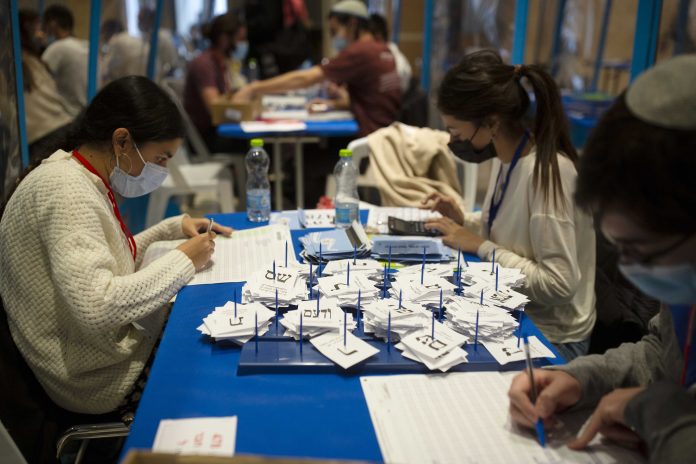
By ILAN BEN ZION
Associated Press
JERUSALEM (AP) — Final election results show Israel in political deadlock once again, with Prime Minister Benjamin Netanyahu and his opponents falling short of a governing majority.
Israel’s election commission says that with 100% of votes counted, Netanyahu’s right-wing Likud party and his natural allies have won 52 seats in the 120-seat Knesset, Israel’s parliament. An ideologically diverse array of parties committed to ousting him won 57 seats.
A right-wing party won seven seats and an Arab Islamist party won four. Both are uncommitted, but given the many rivalries in parliament, it is not clear whether either one of them could deliver a required majority.
Party leaders have already begun negotiations that are expected to drag on for weeks. If no one is able to assemble a majority of at least 61 seats, then Israel will go to elections for an unprecedented fifth time in a little over two years.
Tuesday’s vote, Israel’s fourth parliamentary elections in two years, was widely seen as a referendum on Netanyahu’s fitness to rule while under indictment.
Deep divisions between the various parties will make it difficult for either side to gain a majority.
Arab parties have never joined a governing coalition, and for nationalist parties, such an alliance is anathema. Bezalel Smotrich, a Netanyahu ally and head of the far-right Religious Zionist party, said Thursday that “a right-wing government will not be established with support from Abbas. Period. Not on my watch.”
He was referring to Mansour Abbas, the head of the United Arab List, which won four seats.
Gideon Saar, a defector from Netanyahu’s Likud who now heads a six-seat party committed to ousting him, said “it is clear that Netanyahu does not have a majority to form a government under his leadership. Action must now be taken to realize the possibility of forming a government for change.”
The Likud, which won the most seats of any party, fired back, saying such a bloc would be “anti-democratic.” It compared Netanyahu’s opponents to the clerical leadership in Israel’s arch-enemy Iran, which vets candidates for high office.
Yohanan Plesner, president of the Israel Democracy Institute, said that the stalemate is Israel’s “worst political crisis in decades.”
“It’s apparent that our political system finds it very difficult to produce a decisive outcome,” Plesner said. He added that inherent weaknesses in Israel’s electoral system are compounded by “the Netanyahu factor”: a popular prime minister struggling to stay in power while under indictment. “Israelis are split right down the middle on this question.”
Several of Netanyahu’s opponents have started discussing advancement of a bill to disqualify a politician under indictment from being tasked with forming a government, a measure aimed at barring the long-serving prime minister from office. A similar bill was floated after the March 2020 elections, but was never passed.
Netanyahu is on trial for fraud, breach of trust and accepting bribes in three cases. He has denied any wrongdoing and has dismissed the charges as a witch-hunt by a biased law enforcement and media.
Despite the charges against him, Netanyahu’s Likud party received around a quarter of the votes, making it the largest party in parliament. A total of 13 parties received enough votes to enter the Knesset — the most since the 2003 election — and represent a variety of ultra-Orthodox, Arab, secular, nationalist, and liberal factions.
















